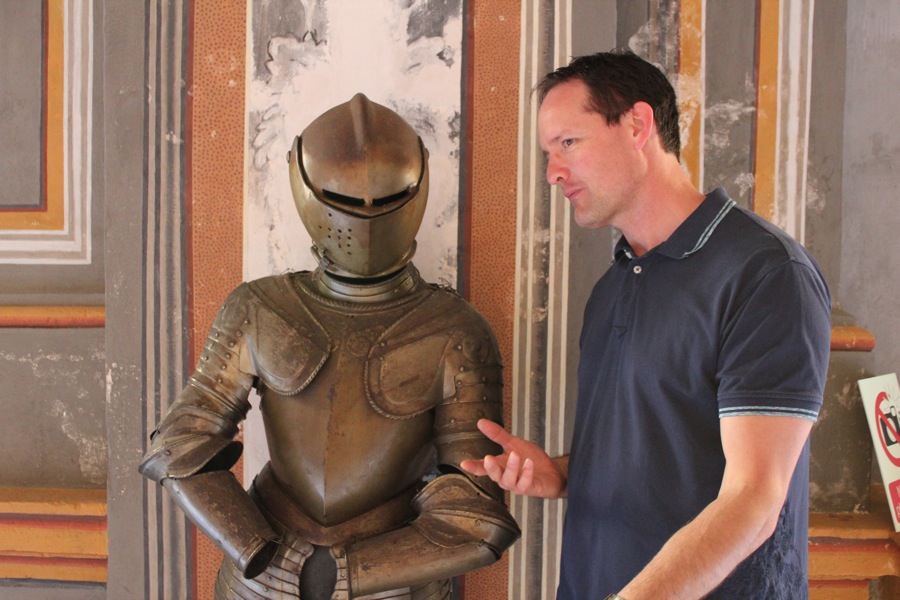
My last blog on conspiracy theories sparked an interesting discussion on Facebook.
My friend Nathan pointed out that I failed to draw a clear distinction between all too real large scale actions perpetrated by governments and the sort of “Lobby of the Unhinged” conspiracy theories I was talking about.
In practical terms, that difference doesn’t matter very much to me.
I’ll tell you why — and what it might mean for you — in this article.
Conspiracy theory vs. official secrets
Nathan’s right, of course.
Complex plots by organized criminals and government / quasi-government agencies do exist. History is full of them. They’re the sort of power politics and semi-legal or illegal activities governments have always been engaged in.
The Iran-Contra business from the 80’s is an example of a complex government plot involving multiple players. Clear evidence emerges in such cases, despite efforts to cover them up.
Conspiracy theories, on the other hand, posit sinister, secretive, powerful groups (ie. the Illuminati) acting together where a simpler, more probable explanation exists. Conspiracy theories also rely on faith, or on ‘evidence’ that’s impossible to refute or to prove.
I acknowledge the former and scorn the latter. But I don’t think the definitions matter very much for my purposes.
I can’t do anything about the sort of nefarious government actions we were discussing on Facebook. But I do think we have the power not to let them affect us.
Why worry about things I can’t control?
It’s already clear that governments are using this pandemic to grab sweeping powers they won’t give back.
The philosopher John Gray wrote that “Dictators come to power on the back of chaos” by promising security. We’re seeing this already in parts of Europe. That’s alarming, not least because the history of the twentieth century is a tale of utopian ideologies enacted by governments resulting in death on an unprecedented scale.
Unfortunately, I don’t see anything I can do about it, apart from voting with my feet.
I’m inclined not to trust governments, but I think my options for responding to them are limited.
What did you do — apart from get mad — when Edward Snowden exposed government data collection and spying on a massive scale? Did you change your behaviour?
I looked into personal encryption for my email and online presence, but in the end, it just seemed too expensive and too disruptive to implement countermeasures in my day to day life.
Such tactics don’t end with paying for email encryption and changing how I work online. I’d also have to devote significant time to keeping up to date with the changing strategies of entire government agencies — and that’s assuming I have accurate information about what would keep my communications private.
Obsessing over such things cuts into the time I could be spending writing or reading. And it’s probably a losing battle, anyway.
Instead, I act on the assumption that everything I write online — including email and private messages — and everything I say on Skype is being read by people other than the intended recipient.
I rarely carry my mobile phone when I go out, and I barely have any apps, but not because I’m wary of being tracked. I just don’t use the thing much, and I don’t want to be distracted by it when I’m away from my desk.
These are examples of simple Direct Actions I can take right now without upending my life.
Another example. Take the current pandemic.
I could become enraged every time I see other people gathering in groups or breaking social distancing laws, and rat them out to the cops or take photos to shame them on social media. I’d accomplish two things, for sure. I’d raise my blood pressure to unhealthy levels, and I’d avoid focusing on issues in my own life.
Alternatively, I could read the latest credible recommendations on how the virus spreads, decide what level of risk I’m willing to accept, and act accordingly.
I can’t shift the trajectory of the society I live in. But I have quite a lot of scope when it comes to plotting the course of my own life.
Take Direct — not Indirect — actions
I don’t believe in joining groups to try to lobby for change. I think in most cases it’s a trap, and a time-suck that eats lives in wasted effort.
That’s just my opinion and my approach to life, of course. Others find fulfillment in joining such groups.
But I feel strongly about empowering individuals. I tend to think that if individuals are encouraged to grow, to empower themselves, and to develop their character, it makes life better for everyone.
That’s why my rule of thumb is to always choose Direct rather than Indirect options.
Indirect actions are things that require the cooperation of other people.
Direct actions are actions that you can take right now. They don’t require me to convince others to change their behaviour so I can be free.
Take drugs, for example. (Not literally — I’ve never been interested in drugs, I’d rather have a cold beer, but it seems like a good example.) Let’s say I liked smoking pot, but pot was illegal in my country, enforced with harsh punishments.
I could choose to move to a place where smoking pot isn’t punished, that’s one option I have the power to act on directly.
Or I could join a pot advocacy group, pushing for change but most likely attracting the authorities to the fact that I’m breaking the pot laws on a regular basis.
Or I could weigh the risks and decide to quietly indulge in my hobby in the privacy of my home, maybe growing a couple plants for myself, not making a big deal of it and not drawing attention to myself.
The second option is an Indirect action, and I could waste my life fighting over that one. The other two are Direct actions with different levels of personal risk.
I realize my strategy of choosing Direct actions won’t protect me from some of the secretive and invasive government actions we were discussing on Facebook. But I do have the option of leaving that society and moving to a place more aligned with my values.
That’s not always easy, but it is possible. I’ve done it several times.
I left Canada and moved to the Mediterranean to have Durrellian wine-soaked conversations in cafes under the southern sun, and to explore depths of history I couldn’t find at home.
When Malta became an overcrowded, criminal infested kleptocracy, I packed my things and bought a one-way ticket out.
I suppose some people would stay and fight, but I see myself as a guest in these countries. If the majority wants to live in a kleptocracy, they’re free to do so — but I don’t want to be there when the consequences of that choice come crashing down on them.
When it comes to the current crisis in Europe, I’m watching to see whether the political situation in my area gets worse (something I have no control over) and making sure I’m prepared to act in case it does (something I can control).
I love living in Berlin, but I won’t hesitate to leave if the rise of extreme Right and Left Wing groups continues to the point of political instability.
Stay flexible, stay mobile
My strategy is to stay reasonably informed without obsessing over things I can’t do anything about, to stay below the radar of governments as much as possible in terms of my lifestyle, and to keep the flexibility to pick up and leave if the place I’m living in becomes unliveable according to my preferences.
I’m not out to change the world in any way. How could I possibly know what’s best for everyone? Thinking one does is either a mark of astonishing arrogance, or the hallmark of someone blinded by ideology.
I’d love to know how the human story plays out, but in the end it just doesn’t matter to me what happens to the place when I’m gone. When I’m dead, I’m dead. I’ll never know anyway.
Sure, I might feel differently if I’d had kids. But I don’t see the benefit in living for a theoretical future I’ll never see.
I’m just trying to live a fulfilling life while doing as little harm as possible, and hopefully writing stuff that individuals might feel adds value to their life, or opens them to some new possibility, whether that be a place, culture, book or idea.
This basic stance allows me to quickly dismiss getting involved in things that won’t further my goals, like joining causes or movements. And it helps me cut through the noise and act quickly when actions are needed.
Direct vs Indirect is a really good tool. I hope you find it useful.

Get your FREE Guide to Creating Unique Travel Experiences today! And get out there and live your dreams...

Hello, Ryan:
Another excellent article on the issue of taking personal control over and responsibility for one’s own life. The philosophies of Stoicism and Buddhism (to some degree) both focus on the individual assuming responsibility for the course of his/her life, notwithstanding events that swirl around and about on a daily basis.
The problem, today more than ever, is that society has become so dependent upon assistance from governmental agencies and groupings that individual action is seen as precarious, uncertain and mayhap even dangerous. It’s scary for a modernized person to look in the mirror and accept that he/she is ultimately the only true resource for living his/her own life until the Universal Conductor punches his/her ticket. Welfare programmes, social security, guaranteed pensions, group insurance plans, stocks and shares…..these are the apparent underpinnings of living a secure, comfortable existence with the least amount of stress and disequilibrium. And yet so many die while striving for these to bear fruit rather than just live your life with scant regard for the external snares of conspiracies, focus groups, movements, et al.
Yes, we feel “safer” in an environment protected from the ravages of nature unleashed, falling interest rates, volatile markets, unpoliced criminal activity, but we have to toe the line and surrender a fair degree of autonomy in order to enjoy these “benefits”. I’m not harpooning society’s attempts to make life easier for the masses but what we lose individually in the process is our own sense of self-governance. And with that, we also slowly but inevitably lose control over the course of our own lives and subject ourselves to the slings and arrows of the external uncontrollable events.
I recognize that only a few individuals are strong enough to weather the tempest of assuming self-responsibility, it’s just the result of “civilization” and “progress”, but how diminished are our lives in the process!
Provocative article, Ryan, but again of the good kind. Thanks for the gentle goad.
Thanks Bradley. I’m in favour of universal health care (no one should die or go bankrupt just because they got sick) and of contributing to unemployment insurance (anyone can be temporarily down on their luck) — these are the sorts of things governments can usefully provide. But as a rule of thumb, I try to choose direct alternatives whenever possible, to stay reasonably informed without worrying about things I can’t do anything about, and to keep my own goals at the forefront when deciding on my next move.
Ryan, You’re right, you don’t have a family which changes a lot. I’m not going to move to another area taking my kids out of high school because I don’t like local politics. But it does perplex me that I see comments, political, I find offense but ignore because I don’t want to start a verbal War! Well the writer didn’t worry about that so why should I? But I push on keeping my mouth shut. Something unfair here. Thanks for sharing your views. I respect them.
Thank you as always for taking the time to share your thoughts, Clark. I appreciate it.
I agree, I’m sure I’d feel differently if I’d had kids. I chose not to, in part because I didn’t think I’d be very good at it, but mostly because I wanted to focus my life on my work. Life is so short. In choosing to pursue one thing, we’re choosing not to pursue many others. I know the solutions I wrote about won’t work for everyone. Having a family does make one less mobile (though I do have many friends who changed countries with their entire family, some more than once). I don’t think moving or living abroad is the solution for everyone. There are a lot of down sides to it, too. But I hope the lens of “direct vs. indirect” proves useful for thinking through options.
I understand re: comments. I’ve never censored comments by anyone so far, including those I disagree with. I normally try to find some common ground, however narrow, that we might agree on, and agree to disagree about the rest. Fighting on the internet is such an unrewarding task.